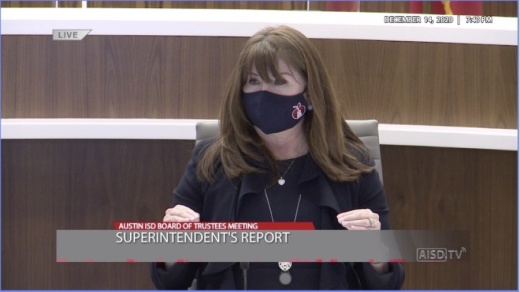AISD medical exemptions are granted to individuals who are immunocompromised and considered more susceptible to contracting COVID-19 according to Centers For Disease Control and Prevention and Austin Public Health guidelines. Approved individuals are given permission to work or teach remotely.
According to data provided by AISD on Dec. 14, only 5.86% of the 1,280 requested spring exemptions have been approved, while 1,111 requests were denied and 94 were still under review as of Dec. 9. The number of approvals is 1,169 fewer than what was granted for the 2020 fall semester, which saw the district approve 1,244 exemptions and deny only 66.
Superintendent Stephanie Elizalde said the process to approve work from home accommodations for the spring was different from in the fall, resulting in the shift in approval numbers. Fall approvals were granted to employees with evidence of any condition or ailment listed by the CDC to be a high risk or possible high risk for COVID-19. For spring approvals, AISD worked with Austin Public Health to create a refined list of the highest-risk conditions, she said.
The district also took an employee’s role with the district, and how remote work would impact others in his or her department, into account for the spring, she said.
At the district's Dec. 7 meeting, AISD trustee Yasmin Wagner said that, while the district may have given out approvals too liberally in the fall, it seems that through the new process “ the pendulum has swung too much the other way.”
“At a certain point, I think we need to rally around those individuals and getting them the help they need, even if it means making a sacrifice like moving a student to a different classroom,” she said.
For teachers who had their exemption denied by the district, interim Chief Human Resources Officer Leslie Stephens said the district is working with them to try to find other accommodations.
"We are still engaging with our employees, including having conversations with them via phone to explain what the reason is for the accommodation that was requested not being approved, providing alternate accommodations and/or requesting additional documentation from their physicians," Elizalde said Dec. 14. "We also do have a grievance or an appeals process in place."





